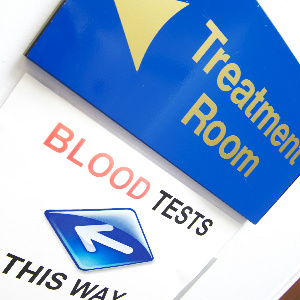New GP care models have lost out on funding to acute hospitals, says NAO

NHS England has scaled back its ambition for new models of general practice ‘to reduce deficits faced by acute trusts’, a report from the National Audit Office has said.
The report on NHS England’s ‘vanguard’ programme, focusing on primary and acute care systems (PACs) and multispecialty community providers (MCPs), comes as central funding for the pilot areas came to an end in March this year.
Since then, two of the 31 areas have decided not to continue their new care model, and NAO found that ‘the original intention to expand the vanguard programme was not realised because funding was reallocated to reducing trusts’ financial deficits’.
The vanguards formed part of NHS England’s Five Year Forward View, with the ambition for the new care models to be saving the NHS £1.4bn per year by 2020/21. MCPs were described as integrated GP-led models of at-scale general practice focusing on a set population, which would offer a wider range of services than traditional GP practices. Meanwhile, PACS were built around hospital trusts wishing to integrate general practice services.
The NAO report, published today, said: ‘NHS England modelled a programme with six waves of vanguards, with an early planning assumption of around £2.2bn in funding for new care models between 2016/17 and 2020/21. However, actual direct funding of vanguards was £329m over three years from 2015/16.
‘This was because of constraints on the funding available for transformation and NHS England’s decision to tackle the short-term financial sustainability of the NHS by using much of the funding to reduce deficits faced by acute trusts.’
It said that ‘ultimately, the programme contained one wave of vanguards, rather than six waves as had been originally modelled’ and that ‘as a result, NHS England planned to save £360m a year from 2020/21, rather than the £1.4bn it had originally hoped for’.
The report also points out that the new ‘voluntary’ GP contracts which were to underpin the new models ‘have not yet been implemented’.
According to the NAO, NHS England still ‘forecasts that vanguards will make net savings but it does not intend to continue measuring the returns’.
‘As at April 2018, NHS England estimated that vanguards would secure £324m of net savings annually by 2020/21, which is 90% of the £360 million expected. The forecast is based on savings reported by local vanguards for the two years to 2017/18,’ it added.
This comes as NHS England data, quoted in the NAO report, showed ‘early evidence that emergency admissions to hospitals have grown significantly more slowly in vanguard areas’. However the NAO said that ‘the impact on overall demand for hospital services and on patient outcomes is unclear’.
Although the vast majority of vanguards (94%) intend to carry on with their new models, participant surveyed by the NAO expressed concerns about funding as well as recruitment and retention.
The NAO concluded: ‘[S]hort-term financial pressures led to the diversion of much of the transformation funding, weakening the programme’s chances of success. Individual vanguards have made progress in implementing new models of care and there are early signs of a positive impact on emergency admissions.
‘But the evaluation is not yet complete and, while NHS England expects to achieve savings, the long-term impact and sustainability of vanguards is still not proven.’
Pulse October survey
Take our July 2025 survey to potentially win £1.000 worth of tokens










